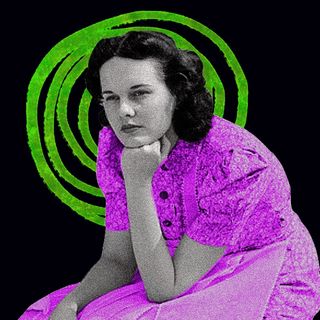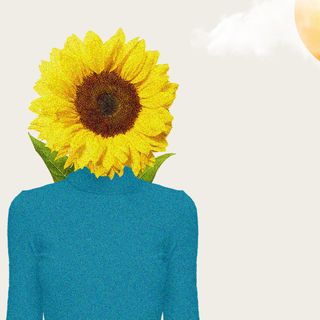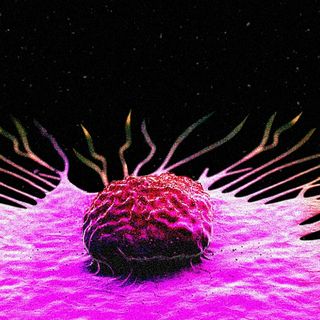Jasmin David, a 51-year-old Indian-origin woman living in Manchester, recently achieved something many can only dream of. After being given mere months to live, she is now cancer-free courtesy of an experimental drug trial.
While the story of David’s recovery may be one-off, it sparks hope for millions of breast cancer patients and their families. In India, one in 28 women is likely to develop breast cancer during their lifetime — with an average survival rate of just five years. To make matters worse, according to a Lancet study, only 66.1% of women diagnosed with it between 2010 and 2014 survived. Naturally, most of us have lost, at least, one person we know — a family member, a relative, a dear friend, or an acquaintance — to the disease.
As such, David’s story is one of hope, and speaks to the emotional succor experimental treatments may offer outside of the traditional limits of medicine.
In November 2017, she spotted a lump above her nipple, and was soon diagnosed with an aggressive triple-negative form of breast cancer. After undergoing six months of chemotherapy, 15 cycles of radiotherapy, and a mastectomy, she managed to rid her body of the disease. Unfortunately, however, her bliss was short-lived. In October 2019, following a dry cough and pain in her chest, she discovered her cancer was back. This time, it had spread to her lung, lymph nodes, and chest bone; she was told she only had months to live.
“I was 15 months down the line after my initial cancer treatment and had almost forgotten about it, but then the cancer returned… My doctor said, ‘I’m so sorry — we can’t offer you anything. We can just make you comfortable.’ I was shattered,” David recalled.
Related on The Swaddle:
A Woman’s Immune System ‘Naturally’ Cured Her of HIV
What came as a blessing for her, at this juncture, was a “miracle” drug infusion trial by the National Health Service (NHS) in England. “When I was offered the trial, I didn’t know if it would work for me, but I thought that at least I could do something to help others and use my body for the next generation,” notes David.
During the two-year trial that followed, she was intravenously administered Atezolizumab, an immunotherapy medicine, combined with an experimental drug. At this time, the NIHR Manchester Clinical Research Facility at The Christie NHS Foundation Trust was in charge of her health.
But it was far from a smooth run. “At first, I had many horrible side effects including headaches and spiking temperatures, so I was in hospital over Christmas and quite poorly. Then thankfully I started to respond well to the treatment… Two and a half years ago I thought it was the end and I now feel like I’ve been reborn,” David added, elated at her unexpected recovery.
Two years ago, she had visited her family in Kerala, India to say her goodbyes, “I wept as I gave [my mother] what I feared was our last ever hug. But she filled me with positivity and told me, ‘I’m sure you will see me again — and both of us will be alive.’ I returned and agreed to do the clinical trial.” Now, she went back to her 97-year-old mother with “good news.” At present, she is looking forward to celebrating her 25th wedding anniversary with her husband in September — a prospect that seemed impossible sometime back.
Currently, David is still receiving the medication every three weeks and, reportedly, her treatment will continue till December 2023. If it worked on her, perhaps, it will work on others too — although it’s only time, and further research, that can determine its viability. Right now, we know almost next-to-nothing about the drug’s side effects or its eventual affordability. But the hope seems worth holding on to. “It is fantastic for everyone when someone responds as well to treatment as Jasmin has,” said Fiona Thistlethwaite, medical oncologist and clinical director at The Christie, who is leading the trial.




